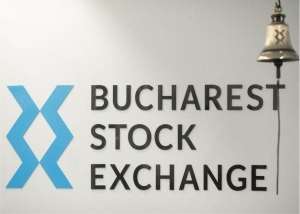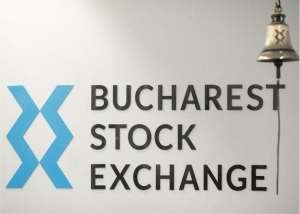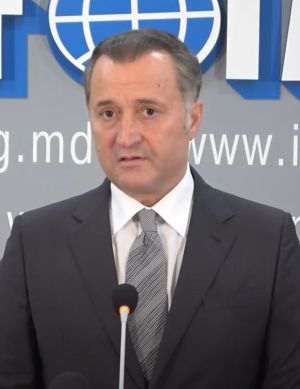Ziarul BURSA: În fostele ţări comuniste, bursele de valori s-au redeschis în anii "90 şi au fost utilizate în primul rând pentru listarea companiilor de stat. Cât de important a fost acest proces pentru piaţa de capital din Slovenia?
Aleš Ipavec: La acea vreme, bursa a fost un simbol al tranziţiei de la socialism la capitalism şi, de asemenea, un simbol al unei economii de piaţă şi al unui nou stat suveran. În anii "90, înainte de privatizare şi apariţia acţiunilor, rulajul era modest, fiind tranzacţionate în mare parte doar câteva intrumente de datorie. Procesul de privatizare a declanşat dezvoltarea pieţei de acţiuni, ceea ce a continuat în noul secol, majoritatea listărilor fiind rezultatul privatizării totale sau parţiale a întreprinderilor deţinute anterior de stat.
Ziarul BURSA: Ce impact a avut asupra pieţei de capital intrarea Sloveniei în Uniunea Europeană şi, ulterior, adoptarea monedei euro? Puteţi detalia?
Aleš Ipavec: Intrarea Sloveniei în Uniunea Europeană şi, câţiva ani mai târziu adoptarea monedei euro, a dus la integrarea într-o măsură mai mare a pieţei noastre cu cele internaţionale, în principal prin adoptarea unor standarde şi practici identice sau similare. Odată cu adoptarea monedei euro, riscul valutar pentru investitorii străini a fost în mare măsură eliminat. Datorită faptului că bursa din Ljubljana devenise parte a Grupului CEESEG (n.r. Central and Eastern Europe Stock Exchange Group) am adoptat şi sistemul de tranzacţionare Xetra. Toatea acestea - noua monedă, noul sistem de tranzacţionare utilizat pe scară largă şi noua legislaţie, ne-au făcut mai atractivi şi mai vizibili pentru investitorii internaţionali.
Ziarul BURSA: În ce măsură îşi finanţează Guvernul din Ljubljana cheltuielile publice prin mecanismele pieţei de capital?
Aleš Ipavec: Aproape tot deficitul bugetar al Guvernului din Slovenia este finanţat prin pieţele de capital. Cea mai mare parte a datoriei publice este emisă în instrumente financiare - obligaţiuni sau bonuri de tezaur. Pentru 2021 se preconizează că datoria publică totală va ajunge la aproximativ 36,6 miliarde de euro, echivalentul a circa 75% din PIB.
Aşteptările sunt ca, aproximativ 35 de miliarde de euro, adică aproape întreaga datorie, să fie sub formă de instrumente financiare emise de Slovenia, şi doar fracţia rămasă să fie împrumuturi directe.
În 2021, nevoile totale de finanţare (pentru rambursarea datoriilor restante şi acoperirea deficitului anual preconizat) se ridică la aproximativ 5,6 miliarde de euro. Iar aşteptările sunt ca întreaga sumă să fie strânsă prin emiterea de noi instrumente de datorie (Vezi Sursa 1).
În timpul crizei Covid-19, situaţia finanţelor publice din Slovenia s-a înrăutăţit într-o măsură mai mare decât media Uniunii Europene. Creşterea datoriei publice este, astfel, mai sensibilă la posibilele schimbări ale condiţiilor viitoare de finanţare. În pofida creşterii puternice a veniturilor în acest an, deficitul bugetar s-a ridicat la 1,95 miliarde de euro în prima jumătate a lui 2021, uşor mai mare decât cel din aceeaşi perioadă a anului trecut, de 1,92 miliarde de euro. Cu toată creşterea din ultimele luni, atât fluxul fondurilor UE precum şi investiţiile statului în prima jumătate a anului au fost relativ modeste. Or, pentru îndeplinirea obiectivelor stabilite, este necesară sporirea semnificativă a acestora, în a doua parte a anului. Neîndeplinirea obiectivelor poate avea, de asemenea, impact asupra activităţii economice (Vezi Sursa 2).
Ziarul BURSA: Ce influenţă a avut asupra pieţei de capital solvene alăturarea Bursei de Valori din Ljubljana la platforma regională de tranzacţionare SEE Link, la finalul anului 2016?
Aleš Ipavec: SEE Link este un proiect grozav, care reprezintă integrarea pieţelor dintr-o regiune mai largă. Este dificil ca ţările din Europa Centrală şi de Est să se conecteze din punctul de vedere al proprietăţii, dar prin SEE Link este posibilă o conexiune tehnică. Din perspectivă tehnică, SEE Link reprezintă o soluţie excelentă dar, din păcate, în practică, proiectul nu este în faza în care ne-am dori să fie. Ne străduim să facem ca acest proiect să funcţioneze, dar va fi nevoie de mai mult angajament pentru ca SEE Link să îşi îndeplinească scopul.
Ziarul BURSA: Cât din rulajul bursei din Ljubljana este realizat de investitorii străini?
Aleš Ipavec: Mai mult de jumătate din valoarea tranzacţiilor a fost realizată de investitori străini, anul trecut.
Ziarul BURSA: Câţi investitori de retail are Bursa de Valori din Ljubljana şi câte conturi active (prin care s-a făcut cel puţin o tranzacţie la şase luni) există? Care este dinamica numărului acestui tip de conturi în ultimii ani?
Aleš Ipavec: Anul trecut, aproximativ o treime din investitorii de la Bursa de Valori din Ljubljana erau de retail, restul fiind investitori instituţionali. Nu avem statistici exacte despre conturi, dar cea mai mare companie listată are aproximativ 50 de mii de investitori individuali. În Slovenia există în jur de 160 de mii de conturi de valori mobiliare, numărul fiind relativ stabil de-a lungul timpului. Rulajul anual este, în general, de aproximativ 4% din numărul acţiunilor aflate în circulaţie.
Ziarul BURSA: Cât de importantă este industria fondurilor de investiţii pentru piaţa de capital din Slovenia? Oferiţi-ne câteva detalii despre dimensiunea industriei.
Aleš Ipavec: Industria fondurilor este importantă în Slovenia dar, spre deosebire de alte ţări din UE, nu şi-a atins adevăratul potenţial. În trimestrul al doilea al acestui an, activele fondurilor de investiţii s-au ridicat la 3,8 miliarde de euro, o sumă destul de mică în comparaţie cu cea din ţările vecine mai dezvoltate. De pildă în Austria, activele totale ale fondurilor de investiţii s-au ridicat la 221,5 miliarde de euro, în trimestrul al doilea al anului, iar în Italia la 423,6 miliarde de euro.
La finele anului trecut, în Slovenia activele fondurilor mutuale administrate de companiile locale se ridicau la aproximativ 1.555 euro pe cap de locuitor, cu 100 de euro mai mult decât valoarea de la finalul anului 2019. În aceeaşi perioadă, în statele membre ale UE, activele administrate de OPCVM-uri s-au ridicat la puţin peste 23.000 de euro pe cap de locuitor, ceea ce arată că încă există un mare potenţial de creştere a economiilor prin fondurile mutuale din Slovenia.
Valorea activelor fondurilor de pensii se ridica la 1.351,2 milioane de euro, la finalul anului 2020, cu 6,8% mai mult decât la sfârşitul lui 2019. Prin urmare, valoarea activelor fondurilor a crescut cu 85,9 milioane de euro, ceea ce provine, în primul rând, din plăţile nete, care s-au ridicat la 72,8 milioane de euro în această perioadă.
Statistica arată creşterea plăţilor şi a industriei fondurilor în fiecare an, dar şi că încă există loc de îmbunătăţire (Vezi Sursa 3).
În 2013, în Slovenia a avut loc o reformă a pensiilor, dar este nevoie din ce în ce mai mare de o nouă reformă, deoarece structura demografică s-a schimbat mult, iar îmbătrânirea populaţiei creşte de la an la an.
Rata de economisire brută a gospodăriilor (ponderea economiilor brute în veniturile disponibile) a crescut cu 2,3 puncte procentuale în primul trimestru al anului 2020, fiind de 27,2%.
În general, populaţia slovenă este mai predispusă la economisire. Însă, având în vedere că suntem o ţară mai tânără, cu o istorie scurtă a pieţei de capital, avem încă un drum lung de parcurs pentru ca rezidenţii să devină conştienţi de mecanismele bursiere şi să înceapă să economisească în moduri diferite, nu numai prin depozite în conturi bancare (Vezi Sursele 4 şi 5).
Ziarul BURSA: În 2017 a fost lansată piaţa SI MARKET (Sistem Multilateral de Tranzacţionare), care îşi propune să sprijine creşterea IMM-urilor. Cum apreciaţi evoluţia acestei pieţe până acum în raport cu scopul pentru care a fost creată?
Aleš Ipavec: Având în vedere că în fiecare an de la lansare numărul instrumentelor listate creşte, putem spune că Sistem Multilateral de Tranzacţionare evoluează bine. Doar anul trecut au fost listate 65 de acţiuni, şase GDR-uri şi o hârtie comercială. Credem că acest fapt arată că piaţa este atractivă pentru o mulţime de emitenţi, care pot strânge capital şi îşi pot lista instrumentele financiare într-o piaţă cu cerinţe mai reduse.
Ziarul BURSA: Spre deosebire de Vestul Europei, în ţările Europei Centrale şi de Sud-Est, capitalizarea bursieră raportată la PIB este mult mai redusă, iar valoarea tranzacţiilor este mică. Ce soluţii vedeţi pentru micşorarea acestui decalaj?
Aleš Ipavec: În primul rând, trebuie să recunoaştem că alfabetizarea financiară a companiilor slovene (private sau de stat) este destul de slabă. Acest lucru provine din faptul că economia Europei de Vest are o istorie de peste 100 de ani sau chiar mai mult, în timp ce în ţările din Europa Centrală şi de Est economia de piaţă este destul de tânără.
Trebuie să educăm companiile prezentându-le exemple bune de societăţi listate şi aspectele pozitive ale listării la bursă. În plus, diferenţa ar putea fi redusă prin creşterea tranzacţiilor, ceea ce poate fi atins prin educarea financiară a slovenilor şi, mai ales, prin retragerea statului din structura de proprietate a companiilor mai mari. De asemenea, pentru reducerea decalajului este necesară o reformă inteligentă a sistemului de pensii şi o reformă fiscală.
Ziarul BURSA: De mai mulţi ani se discută la nivel european despre Uniunea Pieţelor de Capital (UPC). Cum vedeţi relaţia dintre acest proiect şi perspectivele unui hub regional în Europa Centrală şi de Est? Există vreun potenţial conflict?
Aleš Ipavec: Un potenţial conflict de interese există, dar credem că trebuie să găsim o cale de a integra un hub regional într-un cadru mai larg şi de a-l face mai vizibil în interiorul UPC.
Ţările din regiune sunt destul de asemănătoare din punctul de vedere al dezvoltării pieţei de capital şi au o istorie similară, ceea este un alt indicator că acestea ar trebui să coopereze strâns şi că trebuie evidenţiate ca o regiune importantă în cadrul proiectului UPC.
Ziarul BURSA: Care sunt obiectivele Bursei de Valori din Ljubljana în următorii cinci-zece ani?
Aleš Ipavec: Obiectivul nostru este să devenim punctul financiar şi informaţional central al pieţei interne de capital. Aceasta înseamnă că, pe lângă tranzacţionarea cu diferite instrumente financiare, suntem interesaţi şi de tranzacţionarea datelor/informaţiilor. Acestea din urmă reprezintă, deja, aproximativ un sfert din veniturile noastre totale. De asemenea, sperăm să devenim mai conectaţi la regiunea Europei Centrale şi de Est. Dorinţa noastră este să ne alăturăm unei pieţe emergente şi să aducem Slovenia pe radarele investitorilor internaţionali.
Ziarul BURSA: Vă mulţumesc!
---------------------------
• "Our wish is to bring Slovenia on the radars of international investors"
(Interview with Aleš Ipavec, President of the Management Board of Ljubljana Stock Exchange)
"Almost all deficit spending of the Slovenian Government is financed through capital markets"
"More than half of the turnover of the Ljubljana Stock Exchange was made by foreign investors, in 2020"
"Our objective is to become the financial and information crossroads for the domestic capital market"
Slovenia's entry into the European Union and, a few years later, the adoption of the euro, led to a further integration of the slovenian market with the international capital markets, mainly through the adoption of identical or similar standards and practices, said Mr. Aleš Ipavec, the President of the Management Board of the Ljubljana Stock Exchange, who was kind enough to provide us some relevant details about the evolution of the capital market in his country, as well as the development plans for the coming years.
According to Mr. Ipavec, the slovenian investment fund industry did not reach its true potential, given that in the second quarter of the year, assets under management amounted to 3.8 billion euros, well below those in Austria, which were 221.5 billion euros or Italy, 423.6 billion euros, neighboring countries with Slovenia.
"Our wish is to join an Emerging market and to bring Slovenia on the radars of international investors", said Aleš Ipavec.
BURSA Newspaper: In the former communist countries, stock exchanges reopened in the "90s and were used in the first place for listing state-owned companies. How important was this process for the Slovenian capital market?
Aleš Ipavec: At the time, the stock market was a symbol of transition from socialism to capitalism and also a symbol of a market economy and a new sovereign state. In the 90s, before privatisation and arrival of shares, the turnover was modest and trading comprised mostly of a few debt instruments. The privatization kick-started the stock market development and continued well into the new century, with most listings being a result of a full or partial privatization of previously state-owned enterprises.
BURSA Newspaper: What impact had Slovenia's entry into the European Union and, subsequently, the adoption of the euro currency, for the capital market?
Aleš Ipavec: When Slovenia entered the Europan Union and a few years later also adopted the euro currency, our capital market further integrated with international markets, mainly through adopting same or similar standards and practices. With adoption of euro, currency risk for foreign investors was largely eliminated. At the time, we also adopted the Xetra trading system due to LJSE becoming a part of CEESEG Group (Central and Eastern Europe Stock Exchange Group), which altogether - the new currency, new widely-used trading system and new legislation, made us more attractive and more visible for international investors.
BURSA Newspaper: To what extent does the Slovenian Government finance its public spending through capital market mechanisms?
Aleš Ipavec: Almost all deficit spending of the Slovenian Government is financed through capital markets. The vast majority of government debt is issued in financial instruments, either bonds or treasury bills.In 2021, total government debt is projected to reach around 36.6 billion euros, or around 75% of GDP. Around 35 billion euros or almost all of the total debt, is expected to be in the form of financial instruments issued by Slovenia, with only a remaining fraction being direct loans.
Aleš Ipavec: In 2021, total financing needs (for outstanding debt repayments and projected annual deficit) amount to around 5.6 billion euros. It is expected all will be raised through issuance of new debt instruments (See Note 1).
During the covid-19 crisis, the state of public finances in Slovenia worsened to a greater extent than the EU average. Increased government debt is thus more sensitive to possible changes in future financing conditions.
The government budget deficit amounted to 1.95 billion euros in the first half of 2021, which is slightly higher than in the same period last year (1.92 billion euros), notwithstanding the strong revenue growth this year. Despite growth in recent months, the relatively modest inflow of EU funds, as well as related investment by the state in the first half of 2021, will require a significant increase in the second half of the year to meet the set targets, whereas the failure to meet these may also have an impact on economic activity.
BURSA Newspaper: In december 2016, the Ljubljana Stock Exchange joined SEE Link regional trading platform. What was the impact of this colaboration for the capital market in your country?
Aleš Ipavec: SEE Link is a great project and it represents an integration of a wider region. It is hard for countires of CEE region to connect in terms of ownership, but with SEE link a technical connection is made possible. Technically SEE Link is a great solution, but sadly, in practice, the project is not where we would want it to be. We strive to make this project work, but more commitement will be needed for this project to serve its purpose.
BURSA Newspaper: How much of the turnover of the Ljubljana Stock Exchange is made by foreign investors?
Aleš Ipavec: In 2020 more than half of the turnover was made by foreign investors.
BURSA Newspaper: How many retail investors are on the Ljubljana Stock Exchange and how many active accounts are there (through which a transaction was made at least once every six months)? What is the dynamics of these accounts in recent years?
Aleš Ipavec: In 2020 there were about 1/3 of retail investors on the Ljubljana Stock Exchange, and 2/3 of institutional investors. We do not keep exact statistics about accounts, but our biggest listed company has around 50 thousand individual investors. In Slovenia in general, there are around 160 thousand securities accounts existing, with the total number being relatively stable. Yearly turnover in general is around 4% of outstanding shares.
BURSA Newspaper: How important is the investment fund industry for the Slovenian capital market? Can you offer details on the size of the industry?
Aleš Ipavec: The fund industry is imporant in Slovenia, but has not reached it's fullest potential compared to other countries of the EU. In the second quarter of 2021, the assets of investment funds amounted to 3.8 bilion euros, which is a farily small amount compared to more developed countries such as our neighbouring Austria, where total assets of investment funds amounted to 221.5 bilion euros or of Italy, where total assets amounted to 423.6 euros bilion in the second quarter of 2021.
At the end of 2020, assets in mutual funds managed by domestic management companies amounted to approximately 1555 per euros capita in the Republic of Slovenia, which is 100 euros more than at the end of 2019. During the same period, assets under UCITS management from Member States amounted to slightly more than 23000 euros per capita of a Member State, indicating that there is still a lot of capacity to increase savings in mutual funds in Slovenia.
At the end of 2020, the volume of mutual pension fund assets amounted to 1,351.2 million euros, which is 6.8% more than at the end of 2019. The volume of funds in 2020 thus increased by 85.9 million euros, which is the result of both the growth of exchange rates and, above all, net payments, which amounted to 72.8 million euros in this period.
The statistic shows that each year there is an increase in payments into funds and that the investment fund industry is growing each year, but that there is still place for improvement (See Source 3).
In 2013 a pension reform was implemented in Slovenia, but there is an increasing need for a new pension reform, since the demographics of Slovenia has changed much and the aging population is increasing year after year.
The gross households saving rate (share of gross saving in gross disposable income) increased by 2.3 p.p. over the first quarter of 2020 and it was 27.2%.
Overall, the slovenian population is more prone to saving, but seeing, as we are a younger country with short history of capital market existence, we have yet a long way to go for residents to become aware of the capital market mechanisms and to start saving in different ways, not only having deposits on bank accounts (See Sources 4 and 5)
BURSA Newspaper: In 2017, the SI ENTER MARKET (Multilateral Trading Facility) was launched, a platform which aims to support the growth of medium-sized companies. How do you assess the evolution of this market so far in relation to its purpose?
Aleš Ipavec: The MTF market is evolving well, judging by the fact that every year since its launch, the number of listed instruments is increasing. Only last year there were 65 shares, 6 GDRs and one commercial paper listed on the market and we think that this shows, that the market is attractive to a plethora of issuers, who can raise capital and list their finanical instruments on a less demanding market.
BURSA Newspaper: Unlike Western Europe, in Central and Eastern European countries the market capitalization relative to the GDP is much lower and the value of transactions is small. What solutions do you see to reduce this gap?
Aleš Ipavec: Firstly, we must acknowledge the fact that the financial literacy among Slovenian companies (private or state-owned) is fairly poor. This derives from the fact that the Western Europe's Economy has a history of over 100 years or more, whereas Central and Eastern European countries have a fairly young market economy history. We must educate companies by presenting to them good examples of listed companies and try to present to them the positive aspects of listing on the stock exchange. Furthermore, the gap could be reduced with increase in trading on the stock exchange, which can be achived by financially educating residents of Slovenia and mostly by withdrawal of the state from the ownership of larger companies. A clever pension reform and a tax reform must also be carried out in order for the gap to reduce.
BURSA Newspaper: The Capital Markets Union (CMU) has been discussed at European level for several years. How do you see the relationship between this project and the prospects of a regional hub in Central and Eastern Europe? Is there a potential conflict?
Aleš Ipavec: There is a potential conflict of interest, but we think that we must find a way of integrating a regional hub into a wider frame and to make it more visible inside the CMU. The countries of the regional hub are quite similar from a point of a capital market development and have similar history, which is another indicator that these countries should cooperate tightly and must be highlighted as an important region inside the CMU project.
BURSA Newspaper: What are the objectives of the Ljubljana Stock Exchange in the next five to ten years?
Aleš Ipavec: Our objective is to become the financial and information crossroads for the domestic capital market. This means that, in addition to trading in various financial instruments we are also interested in trading data/information. The latter already accounts for about a quarter of all our revenues. We also hope to become more connected to the CEE region. Our wish is to join an Emerging market and to bring Slovenia on the radars of international investors.
BURSA Newspaper: Thank you!
Note/Notes:
Sursa 1/Source 1:https://www.gov.si/en/topics/borrowing-and-state-budget-debt-management/
Sursa 2/Source 2: https://www.fs-rs.si/category/news/
Sursa 3/Source 3: https://sdw.ecb.europa.eu/reports.do?node=1000004034
Sursa 4/Source 4: Nonfinancial Sector Accounts, Slovenia, 1st quarter 2021 (stat.si)
Sursa 5: ATVP_Porocilo_o_stanju_na_trgu_2020.pdf (a-tvp.si) (pag. 40, 45)

























































